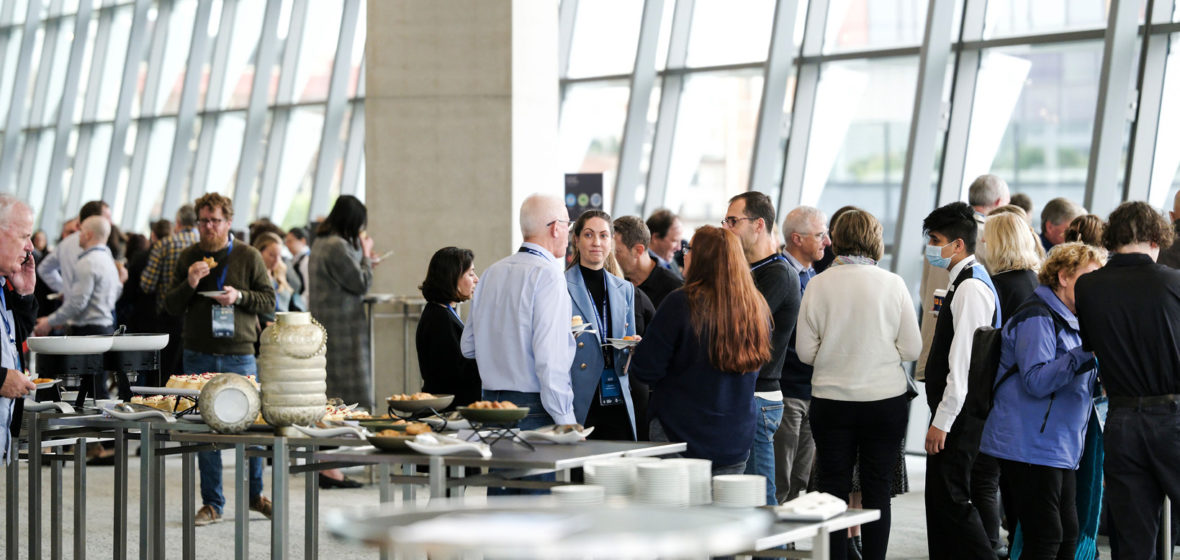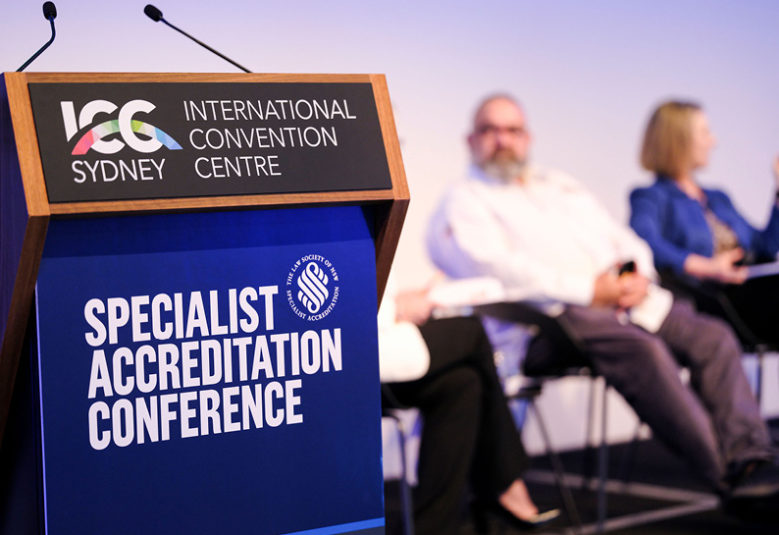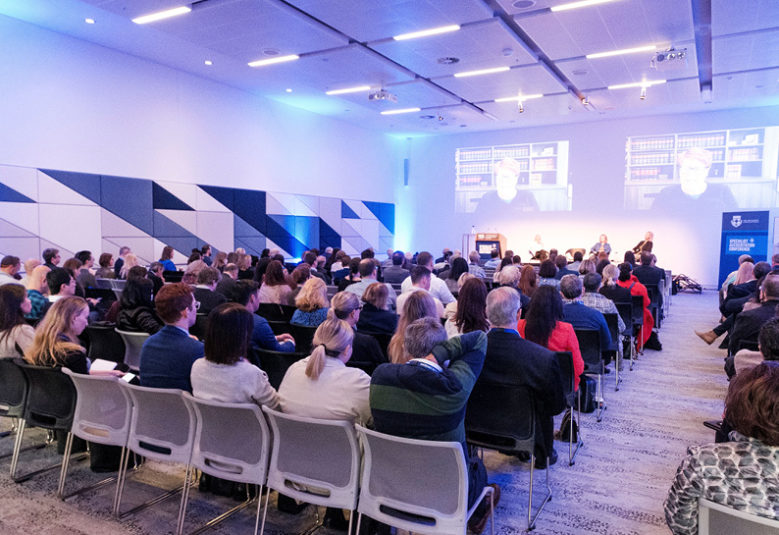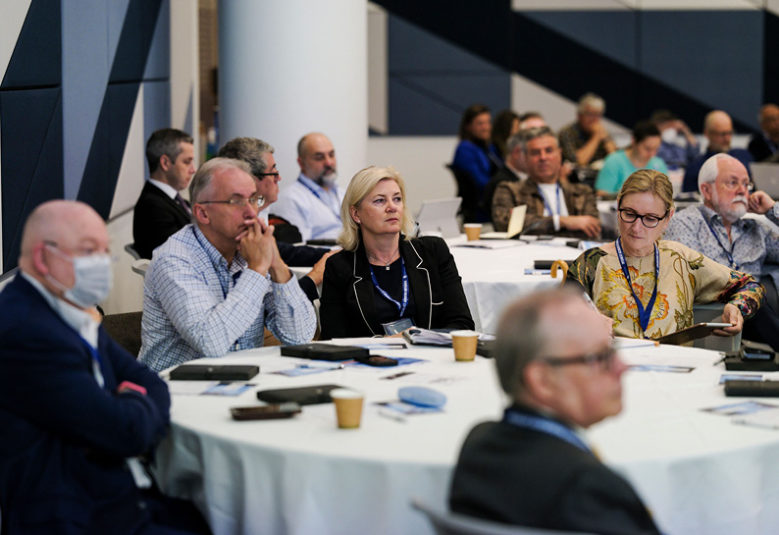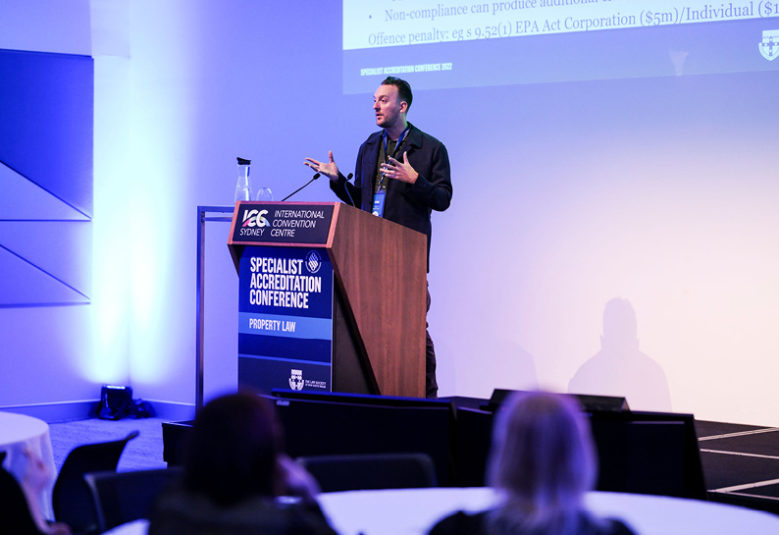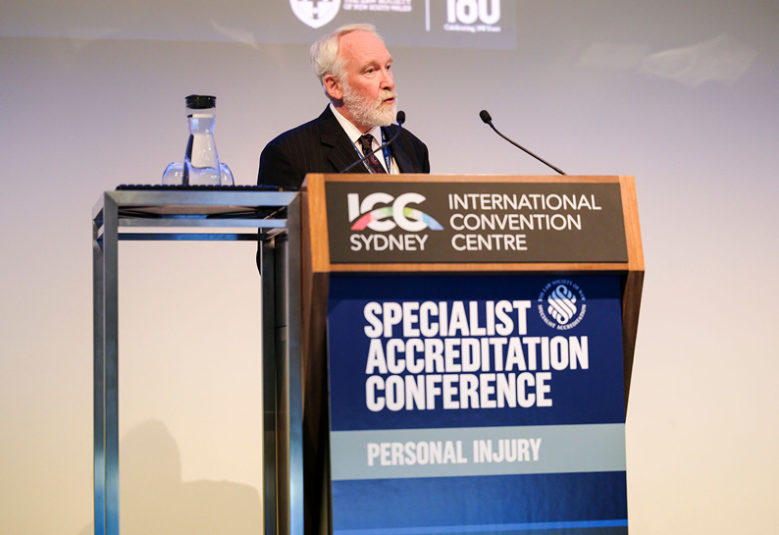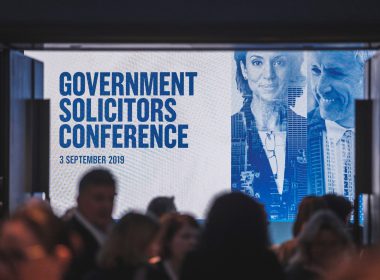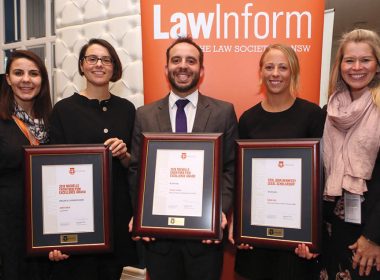From recent major changes to NSW stamp duty, to informative sessions on consent laws and criminalising coercive control, practitioners had more than 50 sessions to discover in the packed Specialist Accreditation Conference hosted by the Law Society of NSW.
The streams for this year’s conference, held as a hybrid event with one day face-to-face before a second half-day conducted entirely online, were business law, criminal law, family law, personal injury and property law.
More than 400 people attended the in-person first day at the International Convention Centre in the Sydney CBD on August 4 before the virtual sessions on August 5.
Among the most popular sessions across two days were criminalising coercive control, secret trials with human rights lawyer and Law Society Committee member Kieran Pender, an update on the Walama List and cultural healing from now Supreme Court Justice Dina Yehia, a comparison of consent laws in sexual assault matters across Australia, an update from the Federal Circuit and Family Court of Australia following the 2021 merger, and a medico-legal panel on medical assessment in the CTP scheme.
An accredited specialist is someone who recognised as a demonstrated expert in their chosen field of law. Solicitors who fulfil the requirements of the accreditation program are entitled to use, after their name, the words ‘Accredited Specialist’ in the nominated area of practice. There are more than 1,600 solicitors in NSW with Specialist Accreditation.
In her special guest address, Lea Armstrong, the President of the NSW Civil and Administrative Tribunal, told the attendees, “being an accredited specialist is incredibly helpful in preparing you for committee work, and making you an attractive candidate.”
Armstrong noted that recently three accredited specialists had been appointed to the Local Court bench: Te’res Sia, an accredited specialist in family law, Mark Whelan, an accredited specialist in family law and children’s law, and Pauline Wright, an accredited specialist in local government and planning law and former President of the Law Society of NSW.
“It does follow that having a deeper understanding of a broad ranges of issues in your specialisation helps in serving before the courts and in our tribunals,” Armstrong said.
“It makes you a resource that judicial officers can call upon. And such service is recognised by the bench.”
Solicitors must have at least five years of practice under their belt before they can apply to become an accredited specialist, and at least three years in their indicated area of legal specialty.
As such, accreditation helps the general public and profession identify solicitors who have established expertise in their particular area of law.
“Just as a medical general practitioner offers primary care for simple ailments and medical specialists attend to more complex health issues, some legal problems require extra knowledge and skill in a particular area of the law,” Law Society President Joanne van der Plaat said.
“The Specialist Accreditation Conference provides an opportunity for these expert solicitors to develop their skills and refine their knowledge in the company of their peers and benefit from the tremendous energy and dynamism that comes from bringing together leading practitioners.”

